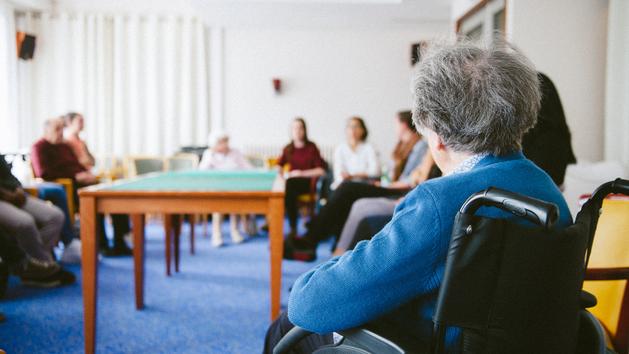Most elderly people had more contact with their families during confinement, but a minority, already usually very isolated, was even more so during the epidemic crisis, reveals a study published Thursday, June 4 by the association Les Petits brothers of the poor.
Read also: LIVE- Coronavirus: Latin America continues to suffer, Europe opens up
"Despite a great surge of family and civic solidarity, many elderly people (...) have suffered even more from loneliness and isolation" , notes the association, which is dedicated to breaking the isolation of seniors. A CSA study, carried out for the association with 1503 people over 60, certainly highlights a “strengthening of family contacts” during confinement: 43% of respondents say that they had daily contact during this period or almost with their families, compared to 33% previously.
Read also: Farmers feel more isolated than ever
But conversely, 4% of those over 60, or 720,000 seniors, "had no contact with their families during confinement" , while only 1% reported such a situation before the epidemic, according to the report. These most isolated people, who "live in a kind of permanent confinement" , may have felt "completely abandoned" during the health crisis.
The "invisible"
It is these "invisible" who "suffered the most" , according to the general delegate of the "Little Brothers" , Armelle de Guibert. For many seniors, digital has certainly restored contacts: 59% of seniors with internet access have made "video" calls with their loved ones (and even 43% of those over 85). However, underline the "Little Brothers", "4.1 million French people aged 60 and over never use the internet, especially the oldest and most modest". For Ms. de Guibert, the challenge will be to "perpetuate the dynamic of solidarity" that manifested during confinement, "so that we go to those who have fallen through the cracks . "
Read also: These grandparents impatient to find their grandchildren
For the association, it is important to "prevent" the isolation of the elderly. For those who still reside at home, this must, for example, involve improving urban planning, to encourage travel, but also by maintaining local services and shops.
Read also: The Covid-19, revealing growing needs for 6 million seniors
And for those who live in retirement homes, it is necessary to "systematize the telephone lines in the rooms" , or even "facilitate the intervention of support volunteers" .
»See also - in a Ehpad, a bubble allows visitors to reconnect with the elderly

